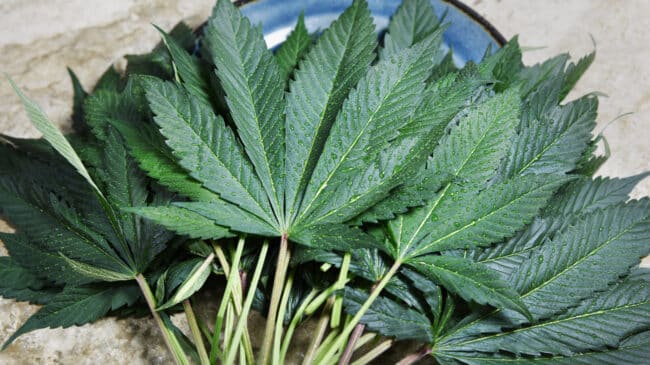In the wake of the 2018 Farm Bill, which legalized hemp and its derivatives across the country, an unexpected flood of hemp-derived cannabinoid products hit the market and has sparked a whirlwind of interest—and concern—among state lawmakers. Unlike marijuana, which for now remains a Schedule I controlled substance under federal law, hemp-derived cannabinoids, such as cannabidiol (CBD) and delta-8 THC, occupy a murkier legal and regulatory landscape. This ambiguity, along with a lack of guidance from federal authorities, has left states grappling with how to ensure consumer safety, prevent underage access, facilitate interstate commerce, and support existing marijuana markets.
The growing popularity of hemp-derived products has stimulated significant legislative attention in recent years, with over 90 regulatory proposals introduced in state legislatures in 2024 alone and 14 states adopting restrictions or prohibitions to some degree. A small but growing number of states have sought to legalize and regulate intoxicating hemp derivatives as general consumer goods, similar to alcoholic beverages or tobacco, or by incorporating them into their existing regulations governing medical or recreational marijuana. Yet, the continued proliferation and evolution of hemp-derived cannabinoid products has exposed significant gaps in existing regulatory paradigms.
State regulations governing hemp products vary widely and are unevenly enforced, creating a patchwork of rules that can change dramatically from one state to the next. Unlike the market for marijuana, which has remained largely intrastate due to federal prohibition, federally legal hemp products can cross state lines more freely. This has resulted in a marketplace where consumers face an increasingly confusing array of products of uncertain quality while businesses must navigate a shifting and uncertain regulatory environment. Additionally, lawmakers and regulators must continually update or amend rules in response to the emergence of new products, consumer behaviors, and industry dynamics.
This piecemeal approach leaves consumers at risk, strains state resources and hampers the ability of even willing actors to comply with state rules. This paper advocates for a cohesive approach to regulating hemp cannabinoid products that includes action by both federal and state policymakers.
Our paper presents a series of recommendations for both federal and state authorities aimed at harmonizing standards across testing, labeling, packaging, and taxation for all cannabis products. By implementing these measures, states can enhance compliance and market competitiveness, reduce costs, and ensure consumer safety as both marijuana and hemp markets evolve.
Ensuring consumer safety and minimizing youth access to potentially intoxicating products can also be achieved through state regulations that differentiate between high-THC and low-THC hemp products. We recommend states adopt labeling standards by which high-THC product labels must provide detailed potency disclosures and risk warnings, while low-THC products may adhere to general consumer goods standards. Consistent advertising restrictions across all cannabis products will also avoid bias based on the source of cannabinoids.
The disparity in tax and regulatory burdens between marijuana and hemp products also fosters an uncompetitive landscape between the two product categories. High costs in state-regulated marijuana markets, such as those in California, push consumers toward cheaper alternatives, including both illicit marijuana and less-regulated hemp. To level the playing field, states should reduce the tax and compliance costs imposed on legal marijuana businesses, aligning them more closely with those for hemp producers. Imposing a single, uniform excise tax on all intoxicating cannabis products would simplify the tax system and reduce incentives for consumers to seek cheaper, illicit options.
Restrictive licensing frameworks for marijuana businesses also contribute to its competitive disadvantage compared to hemp, limiting market entry, innovation, and consumer access, with artificial scarcity raising prices and pushing consumers toward alternatives. In contrast, intoxicating hemp products can be produced in any state, shipped to a variety of retailers, and sold directly to consumers even in states without legal marijuana sales. This dynamic distorts the market in favor of hemp products, sometimes sold under transient branding and lacking clear originating information for the producer, which consumers might not choose if legal marijuana were more affordable or available.
Regulators ought to be aware of who is selling intoxicating cannabis products, but regulatory schemes should not push market participants toward the hemp market merely because marijuana licensing is too costly or unavailable. We recommend states adopt a middle-ground approach between overly restrictive marijuana licensing regimes and the lack of any such framework for hemp. In particular, we suggest state law at least require hemp producers to register with state regulatory authorities while also drastically reducing both financial and non-financial barriers to entry into the marijuana market. This may include allowing any retailer who can demonstrate competence over inventory management for age-gated products to become eligible to retail both hemp cannabinoid and marijuana products.
Finally, to fully realize the potential of a national cannabis market, particularly in light of the emerging hemp derivatives sector, states must also permit the interstate sale of marijuana products. As these authors argued in a prior paper, existing bans on out-of-state marijuana products are unconstitutional under the Commerce Clause and exacerbate the competitive advantage hemp currently enjoys. State lawmakers should agree to remove bans on the import of marijuana and allow state-licensed producers to export to purchasers in other states. In addition, lawmakers should take steps to align packaging, labeling, and testing protocols to facilitate a robust and legal interstate market.
The rapidly evolving cannabis industry presents both opportunities and challenges for state regulators. By adopting a more unified and flexible approach to both hemp and marijuana regulation, states can enhance market competitiveness, reduce costs, and protect consumers. Embracing these recommendations will position states to lead in the burgeoning cannabis sector while ensuring consumer safety and market integrity.
Read the full Policy Brief here:
Download this Resource
A Framework for Federal and State Hemp-derived Cannabinoid Regulation
by Michelle Minton and Geoffrey Lawrence
Thank you for downloading!


